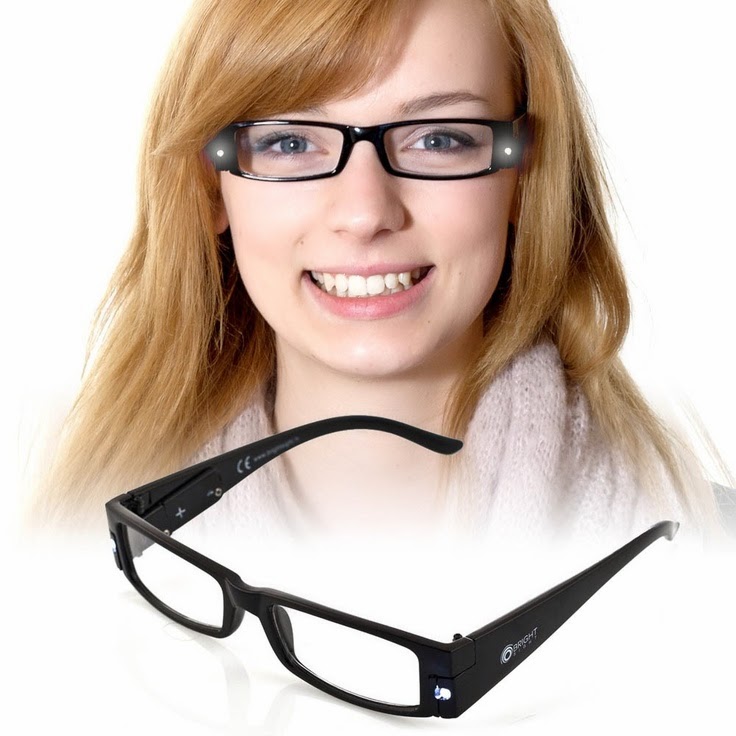
Illuminating the Advantages of LED Lighting
The light emitting diode has come a long way.
Once employed as dim indicator lighting in control panels and wristwatches, the latest generation of LED lighting brings a level of illumination that matches any existing type of lighting. Here's a list of the reasons why LED, the light emitting diode, delivers superior performance when seeking lighted reading glasses.
1. They're the Coolest of the Cool
An important selling point for any wearable light source, LED has a super-low energy consumption rating, which is ideal for long battery life. Use incandescent lighting for reading glasses, and the result will be singed eyebrows. Traditional light bulbs get hot, losing precious electrical energy. No one wants a light source that doubles as a heater.
2. A Friend to Nature
LED lighting has no nasty chemicals, toxic powders, or coils of metal filaments to poison the environment. Fluorescent and incandescent lighting encapsulate these twin threats to nature, but LED lighting can easily be recycled and is considered green, a hue not used in reading.
3. A Talent for Mimicking Natural Light
LED lighting emulates the light spectrum of incandescent lighting, emitting shades of yellow and orange along with a bright white illumination to read by.
Old incandescent lighting shared one thing in common with a candle, two if we count the amount of heat expelled, and that's the natural warm light that we instinctively crave. New LED light fixtures return this friendly, fire-bright glow.
4. The Old Man of Lighting
Let's make it clear that the oldster of the bunch is LED and not traditional light bulbs. The old incandescent bulb may be old enough to collect a pension, but the title still goes to the LED contender because it has the potential to last ten times longer than other types of lighting, another positive that makes LED ideal for battery powered reading glasses.
5. Tough Guy of The Lighting World
There's no delicate filament to damage in an LED light. Drop those LED lighted reading glasses and they'll keep on going without pause.
Lighting that sits on or near the face has to stay cool. This isn't possible with normal light bulbs. Try it and the book page will light up, but so will the eyes of the reader as they cook under the heat. LED is the best, the only reasonable option.



